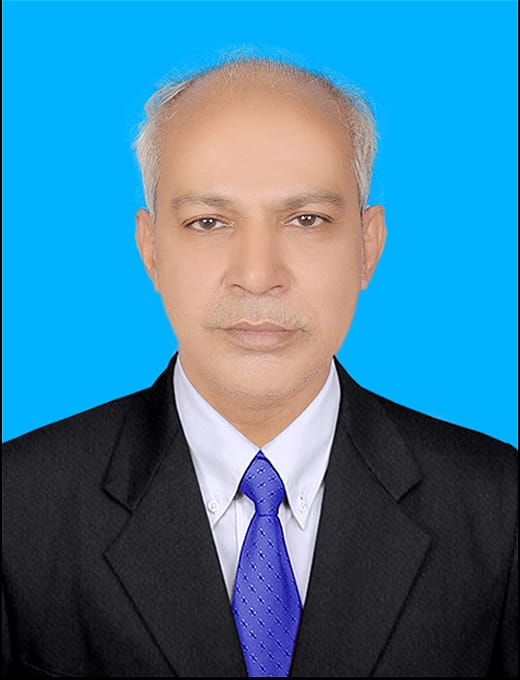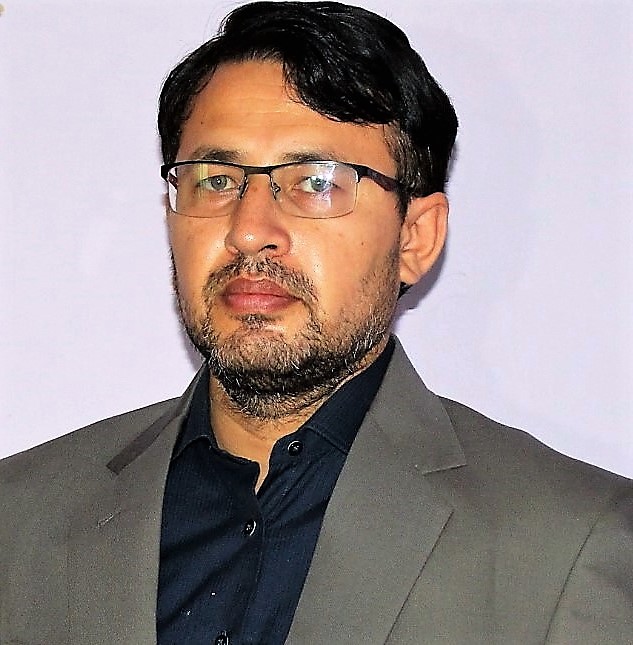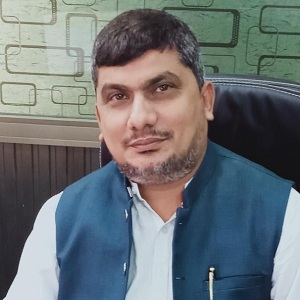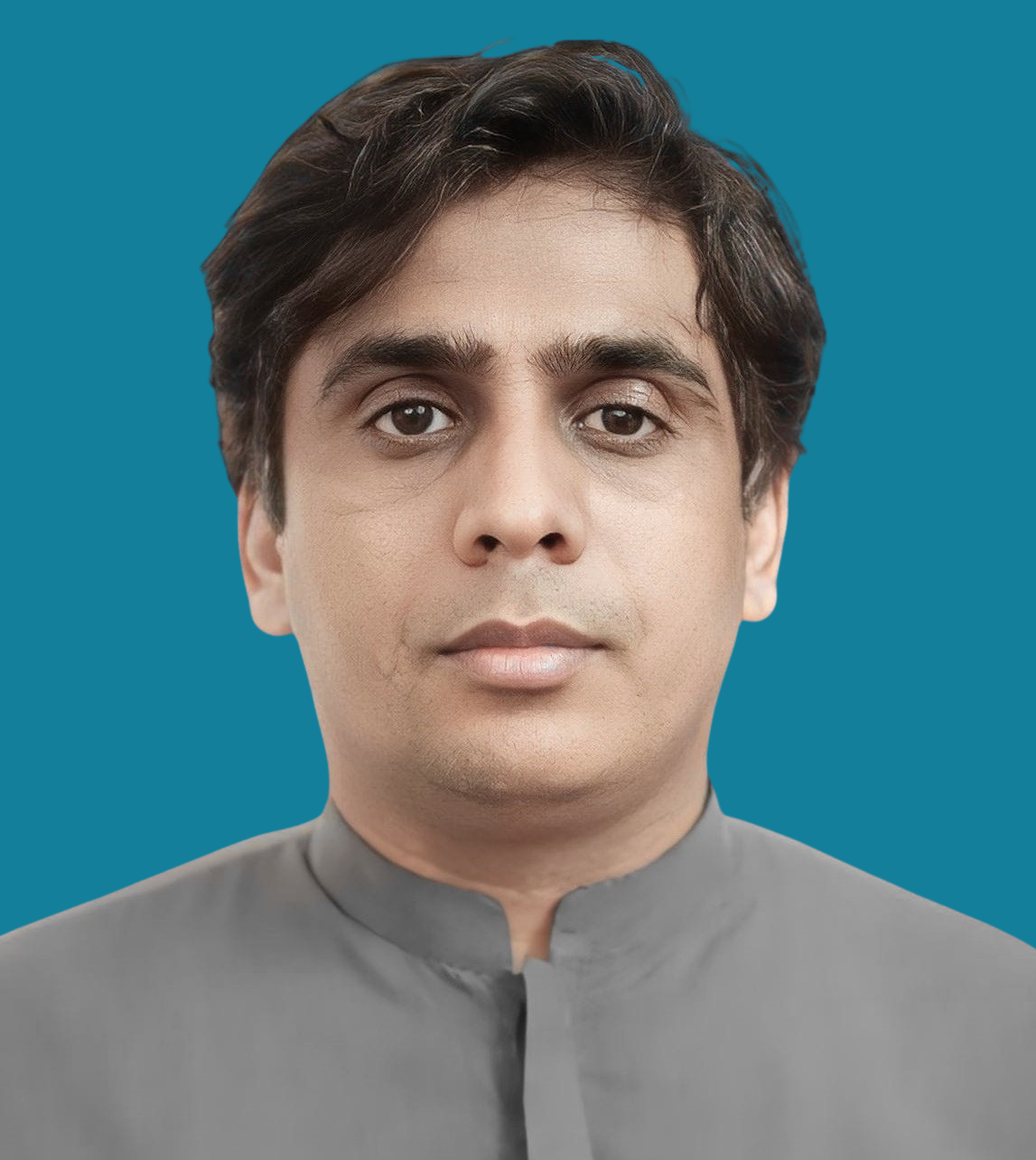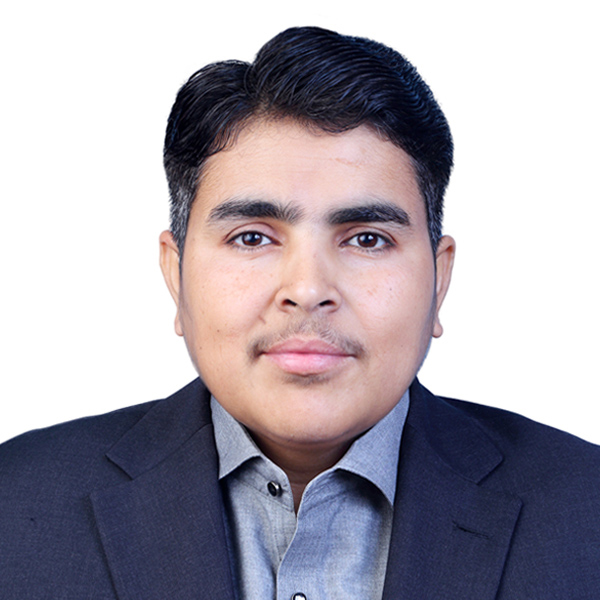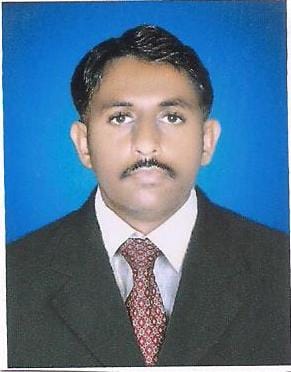
Prof. Dr. Daddan Khan Bangwar
CHAIRMAN
Leading the department with excellence and innovation.
View ProfileAbout the Department
INTRODUCTION
Civil Engineering is the art of directing the great sources of manpower in nature for the use and welfare of mankind. It applies the engineering practice tothe planning, design, construction, management, operation, and maintenance of such works as buildings, roads, bridges, railways, factories, airports, canals, docks, harbours, sea defence, river control, water supply, sewerage disposal, etc.
Being the oldest and yet the most wide-ranging discipline,the department of Civil Engineering is one of the largest departments of the University. Apart from admissions under regular schemes, a substantial number of students are also admitted on a Self-Finance basis.
The department provides Civil Engineering education, which is based on the requirements and needs of the engineering industry at par with the guidelines of HEC and PEC. The department facilitates students for software training and experimental training in laboratories. Thefaculty members having higher qualifications such as PhD, M.Phil, M.E and Postgraduate training from the reputed universities of USA, UK, Malaysia, China, Hongkong, Sweden, Australia and other countries are engaged to impart quality education. In addition to the undergraduate program, the Department of Civil Engineering alsooffers three separate programs Master's in Civil Engineering, Structural Engineering & Construction Engineering and Management in the evening. In these programs, postgraduate students are being trained to face new challenges in the field. These programs comprise three terms of coursework (24
CH) followed by 8 credit hours of research work as the compulsory requirement for the award of the degree.
No matter what engineering discipline is, there is always a need for research to meet the new challenges of the field. Thus, the prominent feature of the Civil Engineering Department is to conduct research in Structural Engineering and other areas of Civil Engineering. Several local, aswell as foreign students, have benefitted from the research facilities and expertise. They have
earned the degrees of PhD, M.Phil, and M.E. The experimental studies carriedout in the laboratories of thedepartment have been published in journals of international repute and presented in their works International and National Conferences.
Civil Engineering Program Educational Objectives
The following are the Program Educational Objectives that are expected to be exhibited by the Civil Engineers after their graduation.
Civil Engineering professionals will:
1. Demonstrate sound knowledge and skills required for planning, design, and construction of Civil Engineering systems.
2. Manage and illustrate effective teamwork, interpersonal skills, and professional growth.
3. Undertake sustainable professional practice considering ethical, societal, and environmental implications.
Mission of Civil Engineering Department
To impart quality Civil Engineering, Technological Education and research through modern teaching and tools for socioeconomic, sustainable development to produce highly competent professionals.
Civil Engineering Program Learning Outcomes
(PLOs 24 Batch onwards)
Program outcomes are related to the knowledge, skills and attitude that the students acquire while progressing through the program and will be able to deliver by the time of graduation at least to some acceptable minimum level. Specifically, it is to be demonstrated that the students have acquired the following graduate attributes (GAs):
PLO-1 Engineering Knowledge: Apply knowledge of mathematics, natural science, engineering fundamentals and Engineering specialization to the solution of complex engineering problems (WK-1-WK-4).
PLO-2 Problem Analysis: Identify, formulate, conduct research literature, and analyse complex Engineering problems reaching substantiated conclusions using first principles of mathematics, natural sciences and engineering sciences (WK-1-WK-4).
PLO-3 Design/Development of Solutions: An ability to design solutions for complex engineering problems and design systems, components or processes that meet specified needs with appropriate consideration for public health and safety, cultural, societal, and environmental considerations (WK-5).
PLO-4 Investigation: Conduct investigation of complex Engineering problems using
research-based knowledge and research methods, including design of experiments, analysis and interpretation of data, and synthesis of information to provide valid conclusions (WK-8).
PLO-5 Tool Usage: Create, select and apply appropriate techniques, resources, and modern engineering and IT tools, including prediction and modeling, to complex Engineering
problems, with an understanding of the limitations (WK-2 and WK-6).
PLO-6 The Engineer and the World: Analyze and evaluate sustainable development
impacts to society, the economy, sustainability, health and safety, legal frameworks, and the
environment while solving complex engineering problems (WK-1, WK-5, and WK-7).
PLO-7 Ethics: Apply ethical principles and commit to professional ethics and norms of engineering practice and adhere to relevant national and international laws. Demonstrate an understanding of the need for diversity and inclusion (WK-9).
PLO-8 Individual and Collaborative Team Work: Function effectively as an individual, and as a member or leader in diverse and inclusive teams and in multi-disciplinary, face-to face, remote and distributed settings (WK-9).
PLO-9 Communication: Communicate effectively and inclusively on complex engineering activities with the engineering community and with society at large, such as being able to comprehend and write effective reports and design documentation, and make effective presentations, taking into account cultural, language, and learning differences (WK-1 and WK-9).
PLO-10 Project Management and Finance: Demonstrate knowledge and understanding of engineering management principles and economic decision-making and apply these to one's own work, as a member and leader in a team, to manage projects in multidisciplinary environments (WK-2 and WK-5).
PLO-11 Lifelong Learning: Recognize the need for and have the preparation and ability for i) independent and life-long learning ii) adaptability to new and emerging technologies and iii) critical thinking in the broadest context of technological change (WK-8 and WK-9).
Degree Programme:
1. Bachelor of Engineering
B.E. (Civil Engineering)
2. Bachelor of Science
B.S. (Civil Engineering Technology)
3. Master of Engineering
a. M..E. (Civil Engineering)
b. M.E. (Structural Engineering)
c. M.E. (Construction Engineering & Management)
4. M.Phil
M.Phil (Civil Engineering)
5. PhD
Ph.D. (Civil Engineering)
Teaching Staff
Non‑Teaching Staff
Scheme of Studies
1st Year
1st Semester
| Code | Course | Credit Hour |
|---|---|---|
| -- | Civil Engineering Materials | 2 + 1 |
| 10 | Functional English | 3 + 0 |
| 11 | Applied Calculus | 3 + 0 |
| 137 | Engineering Mechanics | 3 + 1 |
| 12 | Islamic Studies/ Ethics | 2 + 0 |
| 14 | Pakistan Study | 2 + 0 |
2nd Semester
| Code | Course | Credit Hour |
|---|---|---|
| 15 | Surveying-I | 3 + 1 |
| 16 | Engineering Drawing | 2 + 1 |
| 17 | Computer Fundamentals | 2 + 1 |
| --- | Civil Engineering Geology | 2 + 0 |
| 20 | Linear Algebra & Analytical Geometry | 3 + 0 |
| 21 | Communication Skills | 3 + 0 |
2nd Year
1st Semester
| Code | Course | Credit Hour |
|---|---|---|
| 15 | Surveying-I | 3 + 1 |
| 23 | Strength of Materials-I | 3 + 0 |
| 24 | Civil Engineering Drawing | 3 + 1 |
| 25 | Architecture & Town Planning | 2 + 0 |
| 26 | Statistics & Probability | 3 + 0 |
| 114 | Construction Engineering | 2 + 0 |
2nd Semester
| Code | Course | Credit Hour |
|---|---|---|
| 32 | Numerical Analysis & Computer Applications | 3 + 1 |
| 28 | Fluid Mechanics & Hydraulics-I | 3 + 1 |
| 29 | Strength of Materials-II | 3 + 1 |
| 30 | Transportation Engineering | 3 + 0 |
| 31 | Theory of Structures | 3 + 0 |
3rd Year
1st Semester
| Code | Course | Credit Hour |
|---|---|---|
| 33 | Fluid Mechanics & Hydraulics-II | 3 + 1 |
| 34 | Plain & Reinforced Concrete | 3 + 1 |
| 35 | Highway & Traffic Engineering | 3 + 1 |
| 36 | Structural Analysis | 3 + 0 |
| 37 | Engineering Economics | 2 + 0 |
2nd Semester
| Code | Course | Credit Hour |
|---|---|---|
| 44 | Reinforced & Pre-stressed Concrete | 3 + 1 |
| 45 | Hydrology & Water Storage Structures | 3 + 1 |
| 46 | Steel Structures | 3 + 0 |
| 47 | Soil Mechanics | 3 + 1 |
| 48 | Modern Methods of Structural Analysis | 3 + 0 |
4th Year
1st Semester
| Code | Course | Credit Hour |
|---|---|---|
| 38 | Structural Design & Drawing | 3 + 1 |
| 42 | Engineering Environmental-I | 2 + 0 |
| 43 | Professional Ethics for Engineers | 2 + 0 |
| 39 | Geotechnical Engineering | 3 + 1 |
| 40 | Irrigation & Drainage | 3 + 1 |
2nd Semester
| Code | Course | Credit Hour |
|---|---|---|
| 999 | Project Planning Economics and Management | 3 + 0 |
| 55 | Final Year Project-II (FYP-II) | 0 + 3 |
| 50 | Quantity Surveying & Estimation for Civil Works | 3 + 0 |
| 49 | Environmental Engineering-I I | 3 + 1 |
| 121 | Quantity Surveying Engineereing | 2 + 1 |




